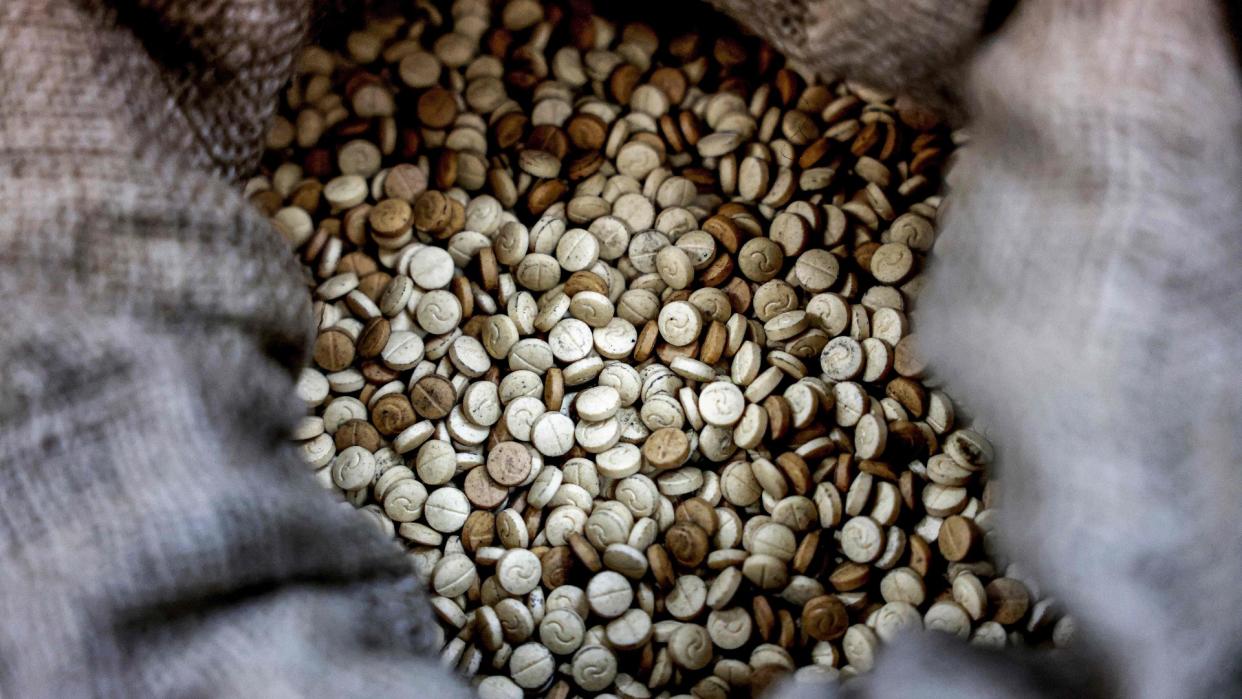A drug called Captagon may have helped fuel Hamas' attack on Israel

Officials from both the Israel Defense Forces and the United States government recently confirmed an earlier report that Hamas militants were high on a counterfeit stimulant known as Captagon when they carried out the Oct. 7 attack on Israel. Also known as the "jihadi drug," "Captain Courage" and the "poor man’s cocaine," Captagon reportedly helped fuel a violent mania on that day. Are these accusations a critical tool of Hamas' plans or an attempt to paint the group as drug-crazed violent zombies?
What is Captagon?
Captagon is the brand name of the drug fenethylline hydrochloride, initially created in the 1960s in West Germany to treat conditions like attention deficit disorder, depression and narcolepsy, Insider reported. The drug was eventually banned in the 1980s due to its "highly addictive nature," the outlet added, but a "clandestine trade" of counterfeit Captagon has flourished in the Middle East ever since. The drug remains extremely common in the region and has "particularly blossomed" in Gulf states such as Saudi Arabia, Qatar and the United Arab Emirates.
The illicit version of the drug is a mixture of "amphetamine and theophylline," and is sometimes cut with other substances like caffeine and the pain killer paracetamol, Reuters reported. Like other stimulants, Captagon helps stave off sleep and hunger while making the user more focused. The drug remains popular among fighters in the Syrian Civil War and militants from the Islamic State.
Since at least 2014, Syria has been considered a significant producer and consumer of the drug. And while Damascus maintains that the country has no involvement in the Captagon trade, sources say production and distribution of the drug "have brought in billions of dollars" for President Bashar al-Assad and his allies "as they looked for an economic lifeline," per Al Jazeera. Though the drug has little-to-no name recognition outside of the Middle East, both the United Kingdom and the United States have expressed alarm over its continued production in Syria.
Did Hamas use the drug to fuel the Oct. 7 attack in Israel?
Claims that the Hamas fighters were high on Captagon during the Oct. 7 attack first surfaced in a report weeks later from Israeli news agency Channel 12. The agency reported that IDF soldiers discovered Captagon pills on the persons of captured militants, as well as on the bodies of Hamas fighters who were killed in the conflict. Two subsequent accounts from USA Today and Semafor seemed to verify this initial story, citing unnamed officials from the IDF and the U.S. government.
Two Israeli security officials confirmed to USA Today that the substance was found on "at least some Hamas members killed during or after the stunning raids on Israel." The officials said they found the drug in pills, powder and liquid form in the pockets of Hamas militants. The Israeli military has declined to officially comment on the allegations.
Anonymous officials said the drug was used to "suppress fear and anxiety during the rampage and stimulate their willingness to attack, kill and, in some cases, torture, civilians," Jay Solomon reported for Semafor. Videos of the attack compiled by the Israeli government left Solomon with the impression that "at least some of the militants were juiced up on drugs." He believed the "length and ferocity of the assault" also suggested that "some of the militants were chemically enhanced."
Others, though, weren't so quick to buy into the evidence. Caroline Rose, director of New Lines Institute’s Strategic Blind Spots Portfolio, told Vice she was skeptical of the claims about Captagon made in the reports. While some of the attackers may have taken drugs, reports of Captagon inducing "violent mania" are unfounded and strictly anecdotal. Rose said. While few studies on the subject have been conducted, Captagon "doesn’t seem to be inciting this kind of crazed behavior," she added. The amphetamine-like pill is similar to other stimulants used in the past to keep soldiers alert and focused and to limit hunger. And while Rose has tracked seizures of the drug in Gaza, she insisted that there is no pill capable of "unlocking" a person's capacity for brutal attacks. She concluded that there was no evidence that Captagon was used in a widespread capacity by Hamas — or that it played a factor in their attack plan.

